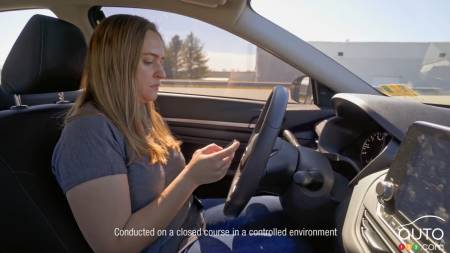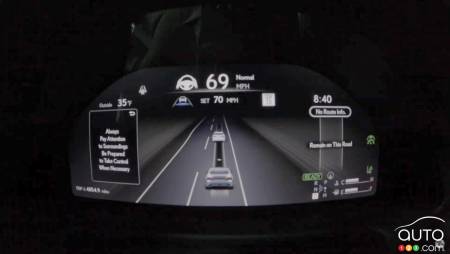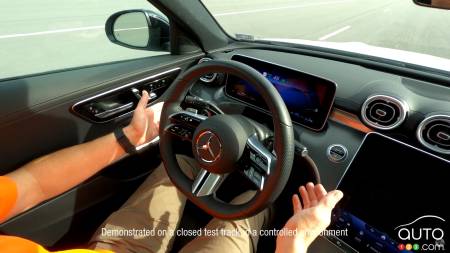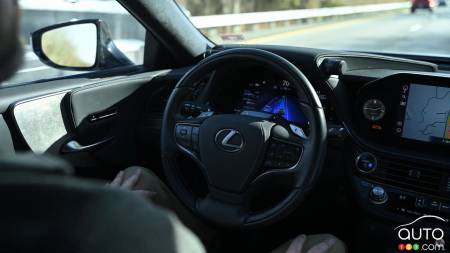• The IIHS conducted a test of semi-autonomous driving systems; 13 out of 14 systems failed the test.
The IIHS (Insurance Institute for Highway Safety), the equivalent of Transport Canada, has the best reputation on the market when it comes to safety. The agency conducts numerous crash tests and is constantly adding criteria to ensure that the models offered by manufacturers are as safe as possible.
The IIHS conducted a new test this year, evaluating the semi-autonomous driving systems that are currently available in vehicles, for instance Tesla's AutoPilot and GM's Super Cruise.
The new test evaluates driver monitoring, attention reminders (in case of inattention) and emergency procedures that are triggered when necessary.

The organization tested 14 systems from 9 manufacturers: BMW, Ford, GM (General Motors), Genesis, Lexus, Mercedes-Benz, Nissan, Tesla and Volvo. The scores obtained follow the same classification table that governs crash tests, so with four rating possible: Good, Acceptable, Marginal and Poor.
First things first - none of the systems achieved the top rating of Good. Only one system, from Lexus (Lexus Teammate with Advanced Drive), was rated Acceptable. Systems from GM (Super Cruise) and Nissan (ProPilot Assist with Navi-Link) received Marginal ratings, the next rung down the ladder.
As for the other 11 systems? They flunked, earning the worst possible Poor rating.

It’s worth noting that the systems were tested on a specific vehicle and not on all models offering the same technology within a model range. For example, the Lexus model tested was an LS sedan, while the Ariya electric SUV was the guinea pig for Nissan.
A number of scenarios were tested. For example, a driver was asked to hold a block of Styrofoam the size of a smartphone to see if the systems would respond with an alert. According to the IIHS findings, none of the fourteen systems met the requirements. The IIHs did mention that Ford did somewhat better than the others in this test component.
Clearly, the overall picture is not rosy. Most of the systems evaluated “don’t include adequate measures to prevent misuse and keep drivers from losing focus on what’s happening on the road. Some drivers may feel that partial automation makes long drives easier, but there is little evidence it makes driving safer,” said David Harkey, President of the IIHS.
He added that “As many high-profile crashes have illustrated, it can introduce new risks when systems lack the appropriate safeguards.”
For example, many systems have great difficulty meeting IIHS standards for driver monitoring, attention reminders and emergency procedures.
Generally faring better in the tests were systems handling automated lane changes and cooperative steering.
Harkey did warn against necessarily seeing the glass as half empty. He pointed out that even if no system scored top marks, each at least performed well with one of the elements evaluated. There's obviously room for improvement, but some manufacturers are on the right track.
The study didn’t particularly focus on whether the systems were functional. That seems to be a given. What the agency wanted to measure was how they responded when situations arose.




